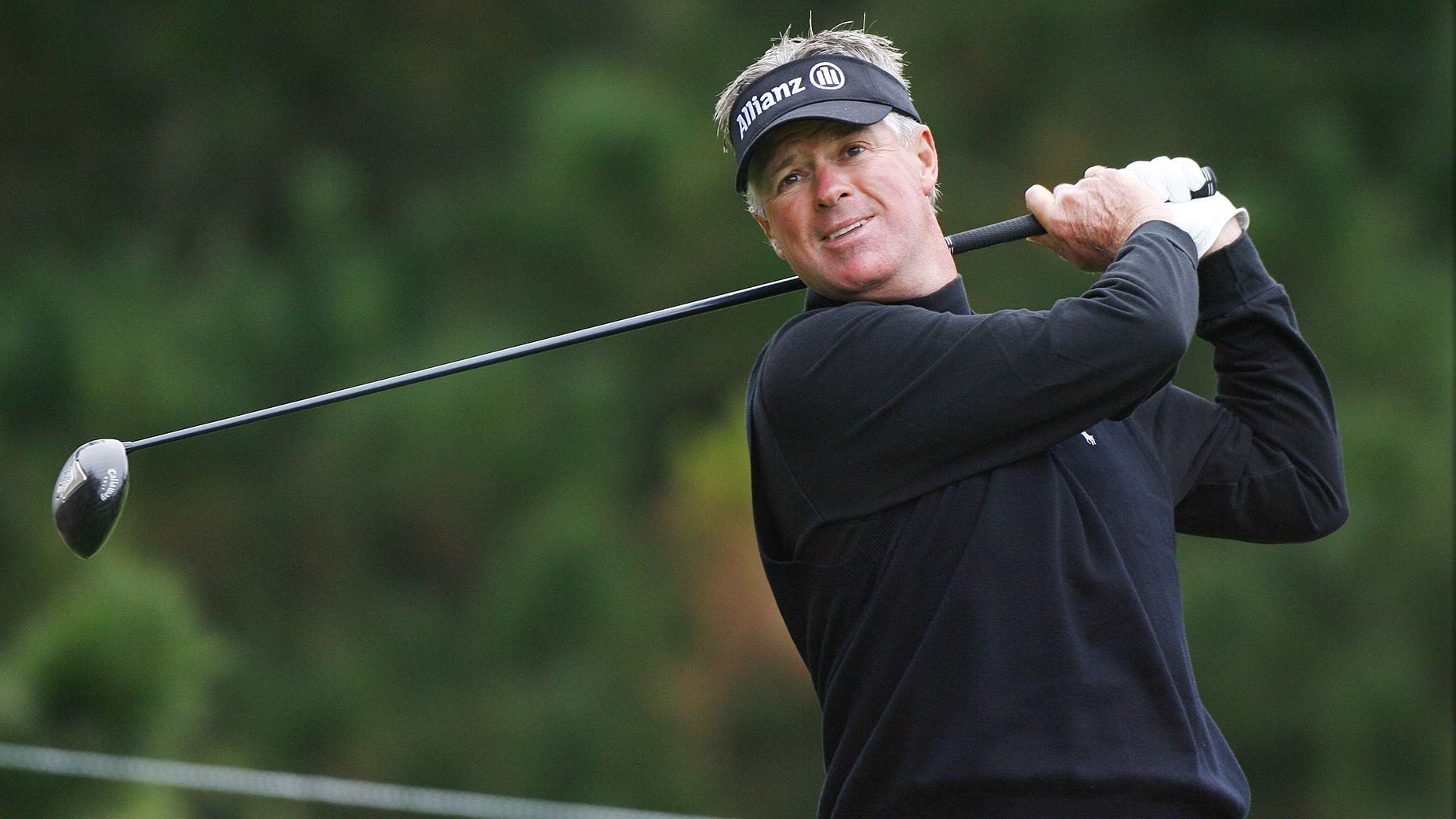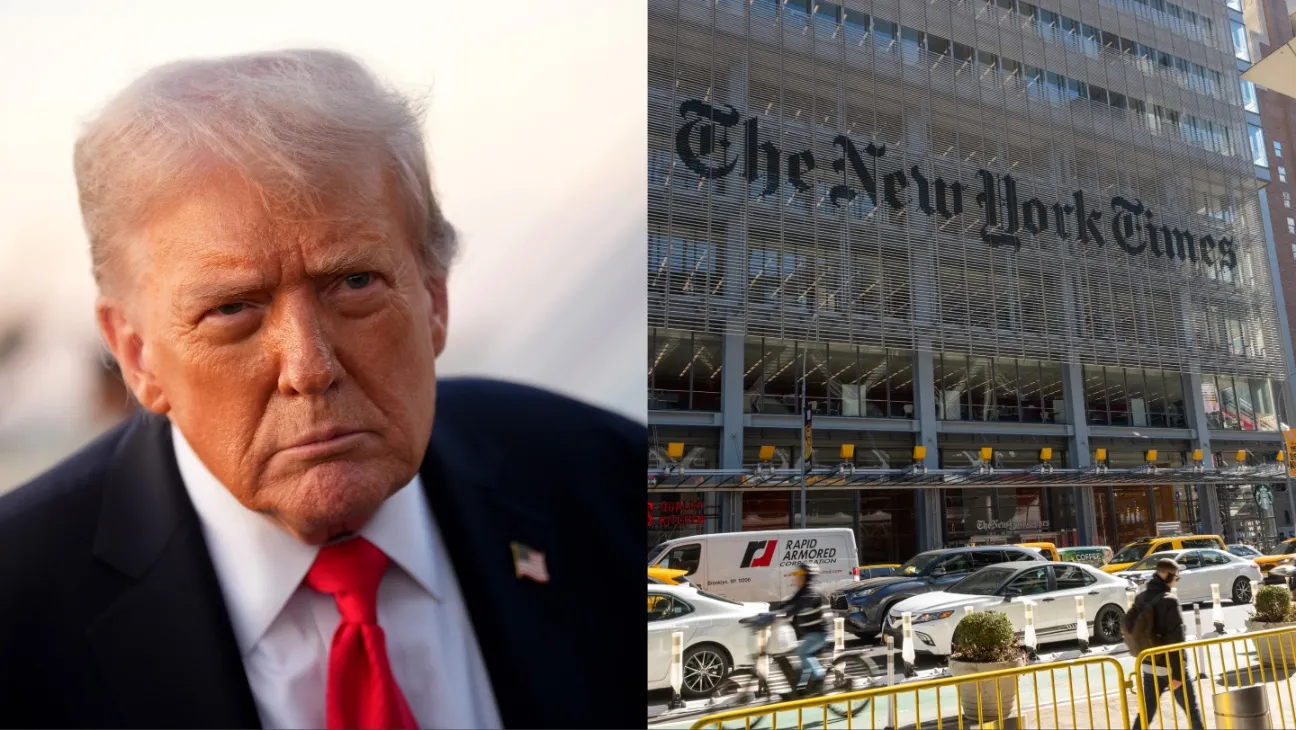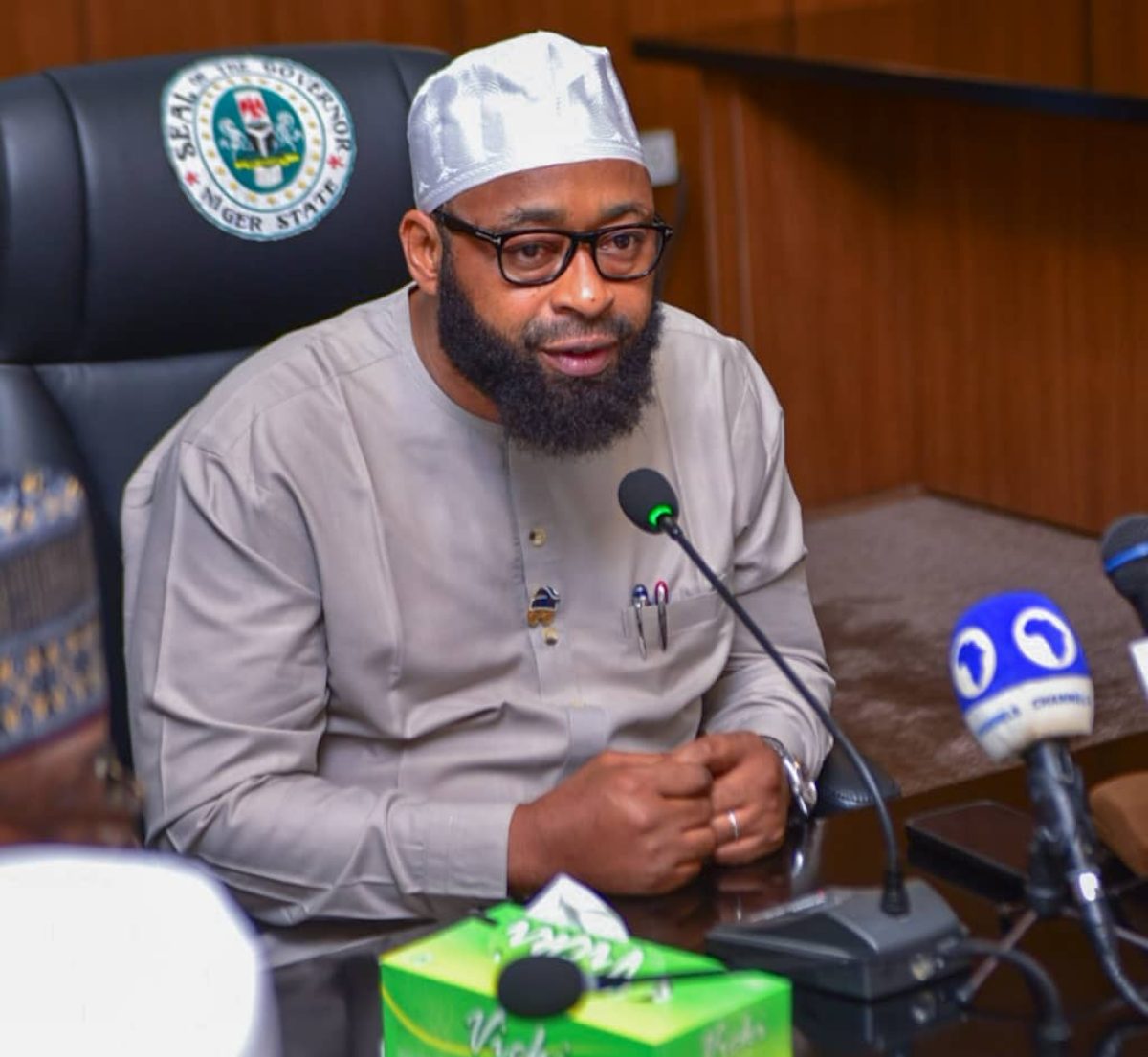
A cruel reality of life is that at a certain point, everything you love to do you will ultimately do for the final time — and there’s usually no way to know it until it’s too late.
This includes golf, the beautiful, maddening, addicting sport you can play for decades, dew-sweeping at a local muni or chasing daylight on a sun-splashed coast. Over a lifetime, you might play a thousand times. But one will eventually be your last.
On Sept. 11, John Harris and David Podas, like they had hundreds of times before, played golf on a perfect fall morning. The course was Edina Country Club, just outside of Minneapolis. Harris asked Podas the night before if he was free, he was, so the men met at the club.
Their tee time was 9:10 a.m. but they got off early, just a twosome, walking and carrying their own clubs. The grass was still wet, the temperature 60 degrees and rising. It wasn’t busy and they played quickly. They talked about the PGA Tour and the upcoming Ryder Cup, the type of things they normally would.
It was a great day for a game — and Harris was on his. At one point, Podas asked him, “Did you get out of a time machine this morning? Is it like 1995 and I don’t know it?”
In Minnesota, everyone knows John Harris, one of the greatest athletes the state has ever seen. In college, at the University of Minnesota, Harris played for Herb Brooks; he was the captain and second-leading scorer on the 1974 national championship men’s hockey team. That same year, on the Gophers men’s golf team, he won the Big Ten championship and later the Minnesota State Amateur.
His resume only grew from there: several Minnesota State Amateur and Mid-Am titles, a Champions Tour victory, Walker Cup teams, an Augusta National membership and, most notably, a victory in the 1993 U.S. Amateur at age 41, making him the last mid-amateur to win the storied championship.
“I’m so glad I happened to have that day free because none of us saw this coming to a close as quickly as it did,” Podas says. “I thought we had a lot of golf left.”
Over the last few years, Harris has battled Acute Myeloid Leukemia, a rare cancer that affects bone marrow and blood. Some days have been better than others. But over the weekend, after his round with Podas, Harris felt ill and checked into a hospital. On Wednesday, Harris died. He was 73.
“In the 40-some years I knew John, he was a greater man than golfer,” says Podas, who believes their morning two-ball was the last round of golf Harris ever played. “He was just an exemplary individual. His golf record speaks for itself — he was a champion — but he led his life in such an exemplary fashion.”
HARRIS GREW UP IN ROSEAU, MINN., the tiny Minnesota town 10 miles south of the Canadian border known for producing high-level hockey talent. That included Harris, who earned a scholarship to play under Brooks at the U of M, following in the footsteps of his father, Dr. Bob Harris. (His younger brother, Rob, also played for the Gophers and in the 1976 Winter Olympics.)
After graduation, Harris played minor league hockey before he took up pro golf, and in 1975 he tied for 11th at the PGA Tour Qualifying Tournament to earn playing privileges for the next season. He made just three cuts in 10 starts and failed to retain membership, and a couple of years later he reached out to Bill Homeyer, a friend and former teammate with the Gophers golf team (and the father of Hilary Lunke, who won the 2003 U.S. Women’s Open). Harris was curious about getting into the insurance business like Homeyer, who told him to try and get some experience in the field. When they connected again later, Harris had a question: “How am I supposed to get experience if no one will hire me?”
Homeyer brought in Harris, and a few years later they broke away and co-founded Harris-Homeyer Insurance. Harris regained his amateur status in 1983 and went on a tear. He won four Minnesota State Mid-Amateurs and three Minnesota State Ams.
In 1993, with 14-year-old son Chris on the bag, Harris won the U.S. Amateur at Champions Golf Club in Houston — which included a quarterfinals win over Justin Leonard — and, nearly 40 years later, is still the last mid-am player (25 and older) to win the Havemeyer. That summer he was named to the first of four Walker Cup teams, where he compiled a 10-4 record.
At the 1995 Walker Cup, Harris teamed up with Tiger Woods and finished 1-1 in foursomes play. Harris and Woods were the last two matches out for Sunday singles and picked up the only U.S. victories. Harris beat a 24-year-old Padraig Harrington, who turned professional after the Walker Cup.
That match-play record was no fluke, Harris’ friends will tell you. They say he was a bomber of the golf ball before it became in vogue and someone whose competitiveness, toughness and stoicism never kept him out of a match. The ultimate grinder, they’d say. A fighter who never quit.
“He never got too high and he never got too low,” says Dick Blooston, who won two Minnesota Golf Association Four-Balls with Harris. “If he got off to a bad start you’d never notice; he never changed his disposition and I think that’s one of the things that made him so successful. He just kept going along, going along, played a hole at a time, and he would play a lot more holes better than he would poorly.”
Podas recently retired as the director of golf from Bel-Air Country Club in Los Angeles, but before that he was the head pro at Minneapolis Golf Club in the 1990s, where he became close with Harris. Their core group of ringers played a couple of times a week all over the cities, taking advantage of Minnesota’s long summer days to snag 4 p.m. tee times and trade $5 a round playing as if they were competing for a U.S. Open trophy.
“We were all best of friends, but when we walked off that tee we wanted to clobber each other,” Podas says.
When Harris turned 50, he returned to the pro game, this time on the PGA Tour Champions. In 2006 he won the Commerce Bank Championship in New York for his first, and only, senior tour victory.
Fittingly, this one came in a playoff, the type of head-to-head duel he thrived on in his amateur career. Harris came from five strokes down entering the final round to shoot 64, tie Tom Jenkins and beat him on the first extra hole.
“I probably was in more of my comfort zone,” Harris said afterwards, referring to the playoff. “I knew what I had to do. I just had to believe in myself in that situation.”
Later in life, Harris moved to Florida but spent summers in Minnesota. He also took up mentoring, at least in the case of Noah Kent, a current University of Florida golfer he got to know after they first met at Calusa Pines when Noah was 10. Last summer, Kent made a spirited run to the U.S. Amateur final at Hazeltine in Chaska, Minn. Battling AML back in Florida, Harris didn’t make the trip to Minnesota to watch Kent, but they talked daily, and Kent had Harris’ initials written on his golf glove.
In the 36-hole final, Jose Luis Ballester was 4 up at the halfway point over Kent, then the 560th-ranked amateur in the world. Kent used the brief break between 18s to call Harris. “If you fight, you know in your heart you’re not going to be upset,” Harris told him. “If you don’t fight, it’s going to leave you haunted.”
Harris could have been referring to his own battles, but in this case he was focused on Kent, who chipped in for birdie on the next hole to cut the deficit in half. Ballester’s lead was trimmed to just 1 up on the 36th tee, although he won the match 2 up. Kent lost but was gracious in defeat, a trait he no doubt picked up from his mentor.
“Something about golf, we lose far more than we win. And John, one of the things I always admired about him, he had the ability to conduct himself with grace whether they were handing him the trophy or whether he finished second,” Podas says. “And that’s an amazing characteristic of somebody. I certainly admired John as a winner, but nobody could not win with the grace, poise and class as he did.
“I’ll never forget that about him.”
BACK AT EDINA COUNTRY CLUB LAST THURSDAY, now sharing a cart with Podas, Harris’ sharp play continued down the stretch. Podas says that was always one of Harris’ best qualities — his ability to close, to play his best golf on Sundays, like he did in his senior-tour win. Many can play well early in the week, but few have that ability to do it when it counts. For Harris, it was in his DNA.
Finishing off a tournament or an opponent is a skill, so Podas knew he was in trouble after 16 holes.
Harris still had that trait in this stage of his life. He had been playing golf a couple of times a week since he returned to Minnesota for the summer, and despite his health struggles his game continued to improve. Maybe not to John Harris’ own high standards. But good by any measure.
“John played beautifully,” Podas says. “I mean, beautifully.”
On this day, Harris took a lead to the par-3 17th hole. He was 2 up.
Podas joked with him: “You ever been 2 up with two to play?”
Harris flashed a wry smile. Two up with two to play means time to close. Be aggressive but don’t make a mistake. The type of mindset attempted by many fierce competitors but executed by few. Harris swung, sailing his ball through the air and landing it safely onto the middle of the green. This was chess now, and Harris wasn’t about to make a mistake.
The game plan worked to perfection: Harris and Podas tied with pars, giving Harris a 2-and-1 victory. He shot 72.
Standing on the 17th green, they smiled, took off their hats, congratulated each other on a great match and shook hands. Five days later, as Podas left Harris’ hospital room, he shook his friend’s hand for the final time.
You can reach the author at joshua.berhow@golf.com.



